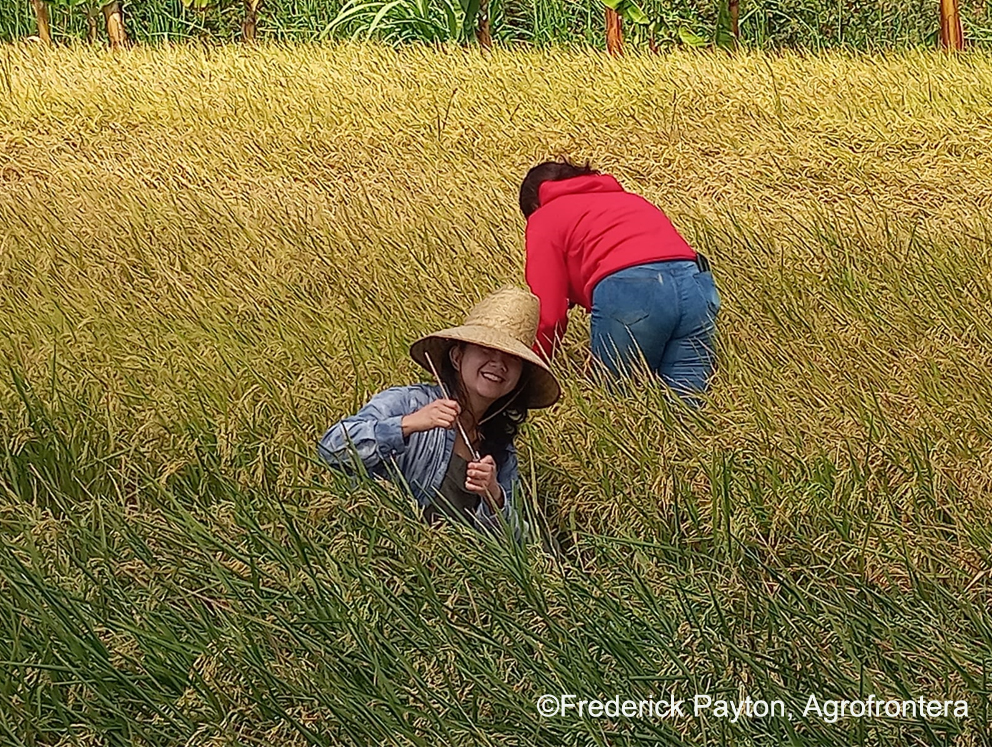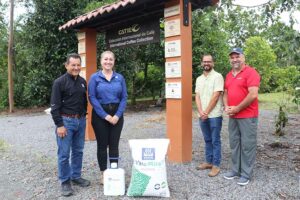Important production chains in the Dominican Republic to be strengthened by the Mangroves for Development Project

- El proyecto buscará hacer más sostenibles las cadenas de leche, carne de ovinos-caprinos, arroz y miel de abeja
March 16, 2022. The Mangroves for Development Project has among its goals to strengthen the livelihoods of communities that depend on mangroves in the province of Montecristi, Dominican Republic, one of the strategies is the strengthening of productive chains that generate negative impacts on mangroves towards sustainable value chains.
Value chains are strategic alliances that are developed between interdependent actors to respond to the demand of a differentiated market, quickly, efficiently and adding value without compromising natural, economic or social resources in the process (Escobedo 2019).
After a broad diagnostic and consultation process, milk production, sheep and goat meat, rice and beekeeping were selected as the chains to be intervened by the project.
The main characteristics of the selected chains include the following:
- Rice chain: rice production with good environmental practices is led by AGROFRONTERA and has a high potential for scaling up in sustainable product markets and becoming an inclusive business. The general perception of rice production is that it is an activity that generates negative impacts on mangroves, so moving towards a more sustainable production system is key to ensuring the health of mangroves.
- The sheep and goat meat and milk chains:have the strength of producer organizations, high product demand, scope for improving transformation processes and support from ongoing government programs, in addition to opening opportunities for women and young people to participate. Current production is carried out in low-tech systems, with uncontrolled grazing.
- Beekeeping production: Although it is an incipient chain, it is a clean production system, it benefits the mangrove pollination processes, the honey market is growing, it has export potential, and it has a stable price and demand. In addition, mangrove honey has organoleptic characteristics that are attractive to specialized consumer segments and it is an activity that will involve women and young people.
"The next steps will include mapping and analysis of the chains, interviews with key stakeholders who provide strategic support services to the selected chains and business strengthening plans for producer organizations," said Evelyn Chaves, researcher at the Climate Action Unit of CATIE (Tropical Agricultural Research and Higher Education Center), the institution that implements the Mangroves for Development Project, led by the Ministry of the Environment and Natural Resources of the Dominican Republic.
This process paves the way toward increasing the competitiveness of the chains, identifying new markets, boosting value-added processes, generating decent employment, among others, while promoting good practices in production systems to mitigate the negative effects on mangroves and the livelihoods of communities.
More information:
Evelyn Chaves
Specialist in Sustainable Agribusiness Development
Climate Action Unit
Climate Action Unit
CATIE
evelyn.chaves@catie.ac.cr
Written by:
Karla Salazar Leiva
Communicator
Information Technology and Communication
CATIE
karla.salazar@catie.ac.cr



